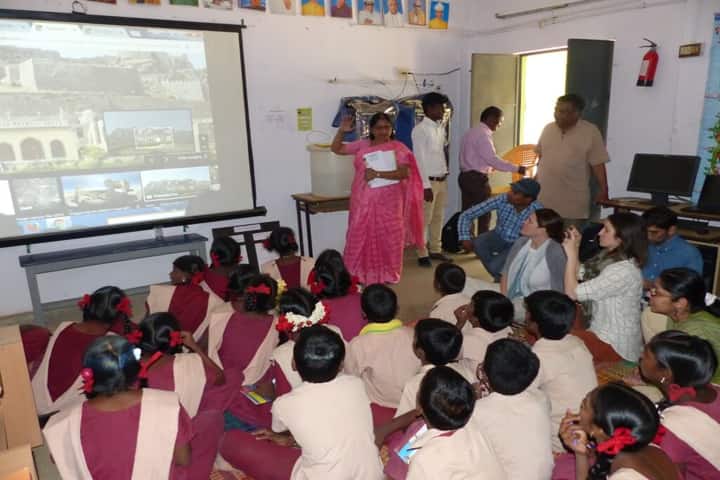The Government of India lays special emphasis on education especially in the rural areas. Among the several projects launched to achieve this, one initiative has been started by the Indian Institute of Technology Kanpur that will impart online education to children in Uttar Pradesh’s rural areas.
Christened as Online Rural Education Initiative, the objective of the project is to provide quality education to village school children through IIT-K’s Ranjit Singh Rozi Shiksha Kendra. It was launched yesterday and is integrated with GoI’s Unnat Bharat Abhiyan.
The pilot programme has been started in UP’s two schools. These are Ram Janki Inter College in Kanpur’s Bithoor and Bhartiya Gramin Vidyalaya in Lucknow. Teaching in OREI is done through smart classrooms at IIT(K) which allows two-way communication between the students in classrooms and the teachers in the institute.
The children and teachers can talk to each other in real time thereby making the whole experience of teaching and learning very interactive. For the time being OREI is available for Classes IX and X and plans are afoot to include students of XI and XII in the coming year.
Run on a voluntary basis, the project has a large number of PhD scholars who are teaching under the guidance of experts. Prof. Sandeep Sangal sharing details about OREI told the media that the plan for the academic year is ready and it not only child-centric but enables backward planning design based on the learning objectives, tools and assessments. He added that the aim is to encourage active learning methods which will make learning fun and interactive.
Teaching in this project is mapped to the NCERT syllabus and done in colloquial Hindi so that the children in rural areas grasp it.
Further, an academic helpline is being planned to allow children to connect and get their problems solved.
The project is expected to contribute to the employability of rural youth and has been adopted by the State’s Education Department to be run in government secondary schools. All the rural schools are expected to be covered by this project.




















